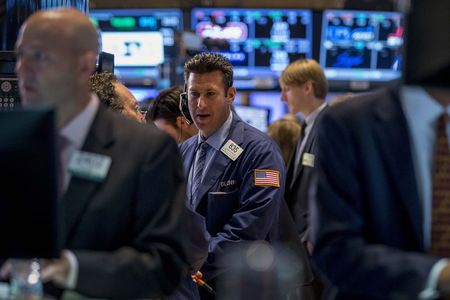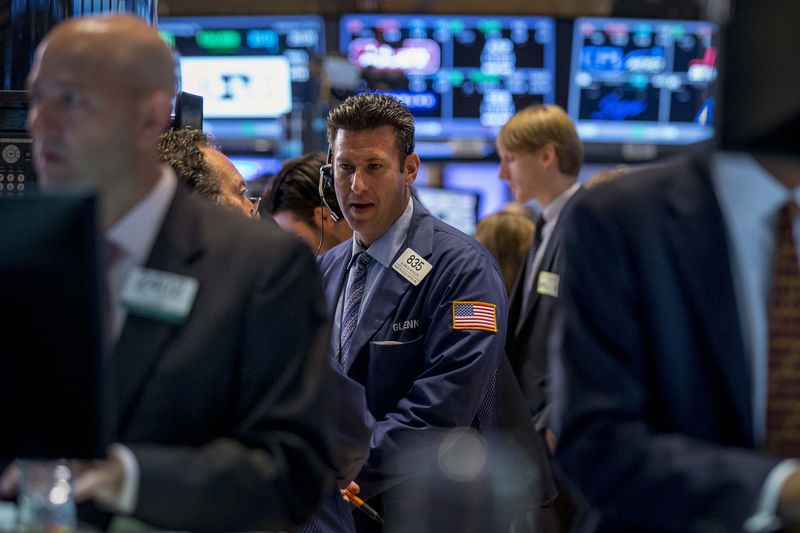By Chris Vellacott
LONDON (Reuters) - With returns on government bonds at rock-bottom prices, sovereign wealth funds are muscling into stock markets and other higher-yielding assets like real estate at a rate that private investors warn could destabilise the world economy.
Since central banks cut interest rates to record lows in a bid to shore up flagging economic growth, world governments have had to look further afield to grow public pension money or central bank currency reserves. But the resulting tide of money is in danger of distorting markets, causing prices to reflect political priorities rather than financial reality, insiders say.
It's also threatening to inflate the very price bubbles that central bank teams globally are working so hard to prevent, experts suggest.
"There is quite clearly both an actual and a potential conflict of interest... There should be some sort of code of practice," said David Marsh, managing director at the Official Monetary and Financial Institutions Forum (OMFIF), which researches public financial institutions.
Sovereign investors manage assets worth $29.1 trillion (18.05 trillion pounds) - equivalent to 40 percent of the global economy - which are held by 157 central banks, 156 public pension funds and 87 sovereign wealth funds, according to OMFIF.
The money originates often from natural resource revenues after a commodities boom - as in the case of Norway, which runs the world's biggest sovereign fund thanks to its oil reserves. Alternatively sovereign wealth funds can reflect an accumulation of manufacturing export revenues, as is the case with China.
Sovereign investors already feature prominently on the shareholder registers of many of the world's largest companies. Some of these stakes, such as Qatar's near 5 percent in Barclays, are a legacy of funds participating in shoring up beleaguered banks during the 2008-2009 financial crisis.
Norway's $890 billion fund owns 1.3 percent of all global shares and aims to put more of its cash in assets other than bonds, such as equities, infrastructure and real estate, its chief told Reuters recently.
And China Investment Corporation (CIC), with $575 billion in assets, allocates around 32 percent of its global investments to public equities and a similar proportion to 'long term' investments including private equity, real estate and infrastructure, OMFIF says.
In the rush to cash in on bumper property prices and a resurgence in global stocks, little thought has been given to the consequence of such major inflows, say private investors.
"People don't spend enough time discussing what the supposed merits of these vehicles are .. What's concerning is that the pool of so-called savings is put in the hands of so few people to be allocated," said Michael Cirami, co-director and portfolio manager at Eaton Vance Investment Managers.
Yngve Slyngstad, chief executive of Norway's sovereign wealth fund conceded the potential for distortions created by state-backed funds' involvement in markets but stressed his fund addressed the issue with strict internal guidelines.
"It is not an issue that I take lightly," he told Reuters. "We have put in place some obvious things like a very high requirement of transparency, limits on ownership, being as clear as possible on how we deal with our ownership roles."
Nevertheless the presence - or otherwise - of a sovereign wealth investor is already causing changes to trading patterns.
When Qatar Holding cut a stake in London Stock Exchange by a third last July, analysts said demand for the shares on sale was boosted because some investors had previously shied away from the company on the basis that the presence of big institutional investors rendered it illiquid and potentially more volatile.
And further impact seems inevitable. If official institutions manage $29 trillion, even a relatively conservative allocation in portfolios to equities of 10 percent could represent as much as $2.9 trillion in funds. That would be enough to move global markets given that the market cap of the MSCI All Country Index (MIWD00000PUS) amounts to $38 trillion.
NEW RULES
Growing anxiety about the rise of state-backed funds participating in capital markets prompted the International Monetary Fund to sit down with an international group of them in 2008 to draw up a set of voluntary practices on transparency and disclosure.
The Organisation for Economic Cooperation and Development (OECD) has also compiled guidelines on corporate governance of state-owned enterprises, that specifies the need to avoid conflicts of interest within state bureaucracies and central banks.
"The OECD recommendation is always that if the government has a significant share in some corporate assets, then it must have a clear separation between its role as an owner and its regulatory functions,&quo
By Chris Vellacott
LONDON (Reuters) - With returns on government bonds at rock-bottom prices, sovereign wealth funds are muscling into stock markets and other higher-yielding assets like real estate at a rate that private investors warn could destabilise the world economy.
Since central banks cut interest rates to record lows in a bid to shore up flagging economic growth, world governments have had to look further afield to grow public pension money or central bank currency reserves. But the resulting tide of money is in danger of distorting markets, causing prices to reflect political priorities rather than financial reality, insiders say.
It's also threatening to inflate the very price bubbles that central bank teams globally are working so hard to prevent, experts suggest.
"There is quite clearly both an actual and a potential conflict of interest... There should be some sort of code of practice," said David Marsh, managing director at the Official Monetary and Financial Institutions Forum (OMFIF), which researches public financial institutions.
Sovereign investors manage assets worth $29.1 trillion (18.05 trillion pounds) - equivalent to 40 percent of the global economy - which are held by 157 central banks, 156 public pension funds and 87 sovereign wealth funds, according to OMFIF.
The money originates often from natural resource revenues after a commodities boom - as in the case of Norway, which runs the world's biggest sovereign fund thanks to its oil reserves. Alternatively sovereign wealth funds can reflect an accumulation of manufacturing export revenues, as is the case with China.
Sovereign investors already feature prominently on the shareholder registers of many of the world's largest companies. Some of these stakes, such as Qatar's near 5 percent in Barclays, are a legacy of funds participating in shoring up beleaguered banks during the 2008-2009 financial crisis.
Norway's $890 billion fund owns 1.3 percent of all global shares and aims to put more of its cash in assets other than bonds, such as equities, infrastructure and real estate, its chief told Reuters recently.
And China Investment Corporation (CIC), with $575 billion in assets, allocates around 32 percent of its global investments to public equities and a similar proportion to 'long term' investments including private equity, real estate and infrastructure, OMFIF says.
In the rush to cash in on bumper property prices and a resurgence in global stocks, little thought has been given to the consequence of such major inflows, say private investors.
"People don't spend enough time discussing what the supposed merits of these vehicles are .. What's concerning is that the pool of so-called savings is put in the hands of so few people to be allocated," said Michael Cirami, co-director and portfolio manager at Eaton Vance Investment Managers.
Yngve Slyngstad, chief executive of Norway's sovereign wealth fund conceded the potential for distortions created by state-backed funds' involvement in markets but stressed his fund addressed the issue with strict internal guidelines.
"It is not an issue that I take lightly," he told Reuters. "We have put in place some obvious things like a very high requirement of transparency, limits on ownership, being as clear as possible on how we deal with our ownership roles."
Nevertheless the presence - or otherwise - of a sovereign wealth investor is already causing changes to trading patterns.
When Qatar Holding cut a stake in London Stock Exchange by a third last July, analysts said demand for the shares on sale was boosted because some investors had previously shied away from the company on the basis that the presence of big institutional investors rendered it illiquid and potentially more volatile.
And further impact seems inevitable. If official institutions manage $29 trillion, even a relatively conservative allocation in portfolios to equities of 10 percent could represent as much as $2.9 trillion in funds. That would be enough to move global markets given that the market cap of the MSCI All Country Index (MIWD00000PUS) amounts to $38 trillion.
NEW RULES
Growing anxiety about the rise of state-backed funds participating in capital markets prompted the International Monetary Fund to sit down with an international group of them in 2008 to draw up a set of voluntary practices on transparency and disclosure.
The Organisation for Economic Cooperation and Development (OECD) has also compiled guidelines on corporate governance of state-owned enterprises, that specifies the need to avoid conflicts of interest within state bureaucracies and central banks.
"The OECD recommendation is always that if the government has a significant share in some corporate assets, then it must have a clear separation between its role as an owner and its regulatory functions," said Hans Christiansen, a senior economist at the OECD's Corporate Affairs division.
But state-backed investment is accelerating: Sovereign funds spent $24.5 billion on mergers and acquisitions in the first half of 2014, the most in any six month period since 2010, according to Thomson Reuters data.
As a result, many think that current guidelines are not enough to defuse potential problems.
"Credit and capital flows are being politicized. It's a disturbing trend and will lead to tears in the end," said Steve Hanke, professor of economics at the Johns Hopkins University and fellow at think tank the Cato Institute.
However, investment with political rather than financial motives is rare among sovereign funds, counters the OECD's Christiansen. And their business is the important one of managing money for future generations.
That's too simplistic, says Hanks.

"The idea that a sovereign wealth fund is not politicised is a joke. And the big problem is that once something becomes politicised, it becomes opaque."
(Editing by Sophie Walker)
